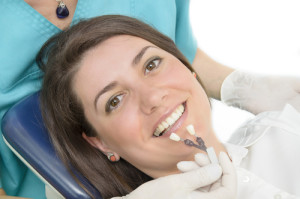No matter how well you take care of your teeth, regular trips to the dentist are essential for maintaining good oral hygiene. The mouth is filled with bacteria, both good and harmful, and the harmful bacteria can cause painless damage that can only be seen by a dentist. When caught early, dental problems can be resolved with less intense treatment and less cost.
Most people began dental treatment in their early years when their first teeth appeared. For some, regular checkups continued, and for others, they let years pass without a dental checkup. Your dentist knows how often you should visit, and it’s best to follow their advice. However, there are times when you need to be seen outside of your scheduled appointment time.
Reasons To Visit The Dentist More Frequently
Smoking
 Smokers should visit their dentist more often as smoking is a risk factor for periodontal disease, an infection of the gums that can cause tooth loss and well as other problems. Periodontal disease can cause swollen, bleeding gums and bone loss. Treatment is expensive and can require prescription mouthwash and a procedure known as scaling and planing that involves the removal of plaque and tartar above and below the gumline. Once removal is completed, the dentist will begin the planing process of smoothing the roots of the teeth to promote tooth reattachment to the gum. Many dentists perform scaling and planing over the course of four visits, doing only one quad at each visit. You can expect to be numbed for the procedure, and you will need to avoid strenuous activity for 24 hours or until the time your Dentist Williamsburg recommends.
Smokers should visit their dentist more often as smoking is a risk factor for periodontal disease, an infection of the gums that can cause tooth loss and well as other problems. Periodontal disease can cause swollen, bleeding gums and bone loss. Treatment is expensive and can require prescription mouthwash and a procedure known as scaling and planing that involves the removal of plaque and tartar above and below the gumline. Once removal is completed, the dentist will begin the planing process of smoothing the roots of the teeth to promote tooth reattachment to the gum. Many dentists perform scaling and planing over the course of four visits, doing only one quad at each visit. You can expect to be numbed for the procedure, and you will need to avoid strenuous activity for 24 hours or until the time your Dentist Williamsburg recommends.
Pregnancy
As soon as you learn you’re pregnant, you should schedule an appointment with your dentist. Pregnancy causes hormonal changes that can result in swollen gums and other dental problems. Gingivitis can cause red gums and swelling and can lead to more serious gum disease known as periodontitis.
Heart Disease
Medical studies have shown a correlation between poor oral hygiene and heart disease. Those with any type of heart disease should visit the dentist more often and schedule regular cleanings.
Diabetes
Diabetics have a greater risk of gum disease and other oral problems. Those with diabetes should visit their dentist more often and follow any preventative treatment plans they are given. It’s important to practice good oral hygiene to prevent more serious problems that might be harder to treat.
Cancer
Cancer can cause many oral issues, especially when patients are undergoing treatments that leave the mouth dry or prone to infection. Some treatments cause painful mouth sores that can attack the gums. It’s best to visit the dentist often and follow the treatment plan that’s recommended for you. Bleeding gums can also become an issue, and there are medications to alleviate excessive bleeding. Your dentist will have your complete medical history and consult with your oncologist when necessary.
HIV
HIV patients can experience tooth decay and other infections that can be quite painful. Regular dental treatment can act as a preventative so that when decay or infection starts, it can be attended to quickly and less painfully.
When To Visit The Dentist Without Hesitation
Most of us have experienced a tooth ailment, whether it’s a toothache, abscess, broken tooth, bleeding gums, or something stuck between the teeth that won’t dislodge. As soon as you notice something is wrong inside your mouth, you should call your dentist and get in as soon as possible. Most dentists will see their regular patients in an emergency.
Don’t hesitate to make a call to your dentist if you experience any of the following symptoms.
Abscess
A dental abscess can be dangerous if not treated properly and hastily. An abscess can become life-threatening, and your dentist will want to see you right away. Often, an antibiotic will be given to fight the infection and reduce swelling. If the tooth is too infected, the dentist might wait until the antibiotic kicks in before extracting the tooth. At the first sign of an abscess, it’s crucial that you visit your dentist.
Lost Filling
When you lose a filling, it can be quite painful if the nerve is exposed. The tooth might throb, and any air getting into your mouth near the tooth can be extremely painful. Call your dentist right away if you’ve lost a filling. Even if it doesn’t feel painful right away, it can become that way quickly, especially when eating or drinking, so never delay making a call for a lost filling.
Dry Socket
If you’ve had a tooth extraction and are experiencing severe pain, it could be a dry socket and you’ll need to call your dentist. The dentist can “pack” the socket with medicine and a self-dissolving covering that will immediately resolve the pain and allow the socket to heal properly. A dry socket needs immediate attention because of the severity of the pain. This is why when you have an extraction, your dentist will tell you no smoking and no drinking from a straw.
Broken Tooth
A small chip in a tooth isn’t necessarily a dental emergency, although it is something you’ll want to tend to as soon as possible; however, a tooth that is broken and exposes the nerve is an emergency, and you’ll want to have it looked at right away. An exposed nerve can be very painful, and it will be difficult to eat or drink. Immediate care will alleviate the pain and your dentist will either fix the tooth temporarily or permanently, depending on the damage. If the tooth can’t be saved, your dentist will extract it. It’s not good to wait when a tooth is broken as pain can become more severe with time.
Signs To Watch For
It’s important that you don’t wait for a regularly scheduled dental appointment if you experience swollen and bleeding gums. While it’s not a dental emergency, it does warrant a call to make an appointment as soon as possible. Don’t hesitate to make an appointment if you experience tooth sensitivity to hot and cold, or you have any pain that doesn’t go away. Also, make an appointment if you notice any growths on your gumline or any discoloration.
It’s good to keep in mind that with dentistry, prevention is the best medicine. Dealing with dental problems before they exacerbate will not only save money, it will save on pain and potential tooth loss.
 ved from being used or inserted to fix a single tooth, via installing on the implant a crown or a replacement tooth, to also serving to fit several missing teeth inserted over a bridge on top of the implant. Therefore, they could help if a person lost one tooth, several or all of their teeth. In the case of half or all of teeth being lost, an alternative of acrylic dentures or false arch of teeth could be fitted, but these do not provide a normal sense of chewing and biting. Which lost teeth can qualify for an implant? The answer is that they are used with pre-molars, canines, front and back teeth whether on the upper or lower jaw
ved from being used or inserted to fix a single tooth, via installing on the implant a crown or a replacement tooth, to also serving to fit several missing teeth inserted over a bridge on top of the implant. Therefore, they could help if a person lost one tooth, several or all of their teeth. In the case of half or all of teeth being lost, an alternative of acrylic dentures or false arch of teeth could be fitted, but these do not provide a normal sense of chewing and biting. Which lost teeth can qualify for an implant? The answer is that they are used with pre-molars, canines, front and back teeth whether on the upper or lower jaw